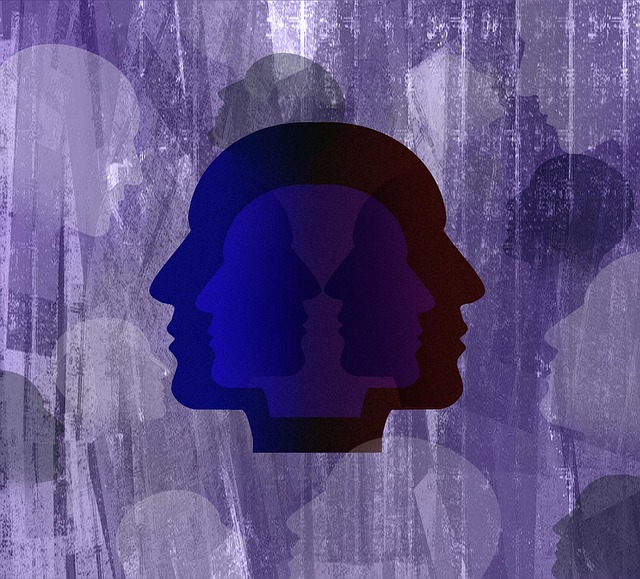Cultural sensitivity is a key component in modern mental healthcare, especially for treating conditions like Centennial Autism Spectrum Disorder (ASD). Therapists who adapt their approaches based on diverse cultural beliefs create safe and supportive environments. Incorporating culturally adaptive strategies, such as mindfulness meditation, improves patient engagement, therapy outcomes, and connections between therapist and client. Addressing cultural biases in diagnosis and treatment ensures effective care for all individuals with ASD, regardless of their background. Integrating cultural sensitivity practices into mental healthcare creates welcoming environments, prevents burnout, and fosters support, ultimately enhancing access to improved services and quality of life for everyone, including those on the autism spectrum.
In an increasingly diverse world, cultural sensitivity is paramount in mental healthcare. This article explores the intricate landscape of Cultural Sensitivity in Mental Healthcare Practice, with a specific focus on Centennial Autism Spectrum Disorder (ASD) Therapy. We delve into the impact of unaddressed cultural biases, offering strategies for culturally competent practice while advocating for inclusive future approaches tailored to ASD populations. By understanding and navigating these aspects, we aim to enhance support for individuals across diverse cultural backgrounds.
- Understanding Cultural Sensitivity in Mental Healthcare
- The Impact of Cultural Biases on Autism Spectrum Disorder (ASD) Therapy
- Strategies for Culturally Competent Practice with ASD Individuals
- Navigating the Future: Ensuring Inclusivity in Mental Healthcare for ASD Populations
Understanding Cultural Sensitivity in Mental Healthcare

Cultural sensitivity is a cornerstone in modern mental healthcare practice, ensuring that therapies and treatments are accessible and effective across diverse communities. It involves recognizing and appreciating the unique cultural beliefs, values, and practices that shape individuals’ experiences of mental health and well-being. In the context of treating conditions like Centennial Autism Spectrum Disorder (ASD), cultural sensitivity becomes even more critical as it allows therapists to adapt their approaches, creating a safe and supportive environment for each client.
Understanding cultural nuances empowers healthcare professionals to integrate evidence-based practices alongside respectful and inclusive techniques. For instance, incorporating mindfulness meditation or stress reduction methods can be culturally adaptive strategies that enhance therapy sessions. By being mindful of these differences, mental health practitioners can improve patient engagement and outcomes, fostering a deeper connection between therapist and client, and ultimately contributing to the growing Mental Health Awareness in diverse communities.
The Impact of Cultural Biases on Autism Spectrum Disorder (ASD) Therapy

Cultural biases can significantly impact the diagnosis and treatment of Autism Spectrum Disorder (ASD), often leading to disparities in care. In many cases, healthcare providers may unconsciously project their own cultural norms and assumptions onto clients, resulting in misdiagnosis or inadequate support for individuals on the spectrum. For instance, certain behaviors commonly associated with ASD, such as social withdrawal or repetitive routines, might be interpreted differently across cultures. What is considered typical ASD behavior in one culture could be seen as a sign of mental health distress in another, leading to varied approaches to therapy and support services.
Addressing these biases is crucial for effective Centennial Autism Spectrum Disorder Therapy. Healthcare providers must be aware of their own cultural backgrounds and how they might influence their practice. Burnout prevention strategies, conflict resolution techniques, and robust risk management planning can help professionals navigate cultural differences, ensuring every client receives tailored care. By embracing diversity and cultivating cultural sensitivity, mental health professionals can create inclusive environments that foster understanding and support for individuals with ASD, regardless of their cultural background.
Strategies for Culturally Competent Practice with ASD Individuals

In the realm of mental healthcare, particularly when engaging with individuals on the Autism Spectrum Disorder (ASD), cultural sensitivity is paramount to creating a supportive and effective therapeutic environment. This involves deeply understanding and respecting each client’s unique cultural background, beliefs, and communication styles. One key strategy for culturally competent practice with ASD individuals is adapting assessment techniques and therapy methods to align with their specific needs and preferences. For instance, some clients may find certain sensory inputs overwhelming during sessions, requiring therapists to be flexible in adjusting the setting to foster comfort and engagement.
Moreover, promoting emotional regulation and stress management among this population requires tailored interventions. Healthcare providers can organize or participate in workshops that teach mindfulness techniques, social skills training, and coping strategies specifically designed for ASD individuals. Such initiatives aim not only to enhance therapeutic outcomes but also to prevent burnout among caregivers and professionals, as addressing the unique challenges of working with ASD clients can be emotionally demanding. These efforts collectively contribute to a holistic approach, ensuring both the well-being of the individuals receiving therapy and that of the healthcare providers supporting them through Centennial Autism Spectrum Disorder Therapy sessions.
Navigating the Future: Ensuring Inclusivity in Mental Healthcare for ASD Populations

Navigating the future of mental healthcare means ensuring inclusivity for all, including individuals on the Autism Spectrum Disorder (ASD). As we move forward, it’s crucial to create a more welcoming and accessible environment for those seeking therapy, especially considering the unique challenges they may face. The rise in ASD diagnoses highlights the need for specialized Centennial Autism Spectrum Disorder Therapy that respects individual differences and promotes mental wellness.
By integrating cultural sensitivity practices, mental health professionals can prevent burnout and depression, fostering a supportive atmosphere where individuals feel seen and heard. This approach is essential to breaking down barriers and ensuring that everyone, regardless of their neurodiversity, has the opportunity to improve their mental health and overall quality of life.
Cultural sensitivity is a cornerstone of effective autism spectrum disorder (ASD) therapy, as it addresses the impact of cultural biases that can hinder progress. By adopting culturally competent practices, mental healthcare professionals can create inclusive environments tailored to the unique needs of ASD individuals. This approach ensures that everyone receives the support they deserve, fostering better outcomes and a more equitable future for ASD populations, particularly in the context of Centennial Autism Spectrum Disorder Therapy.














